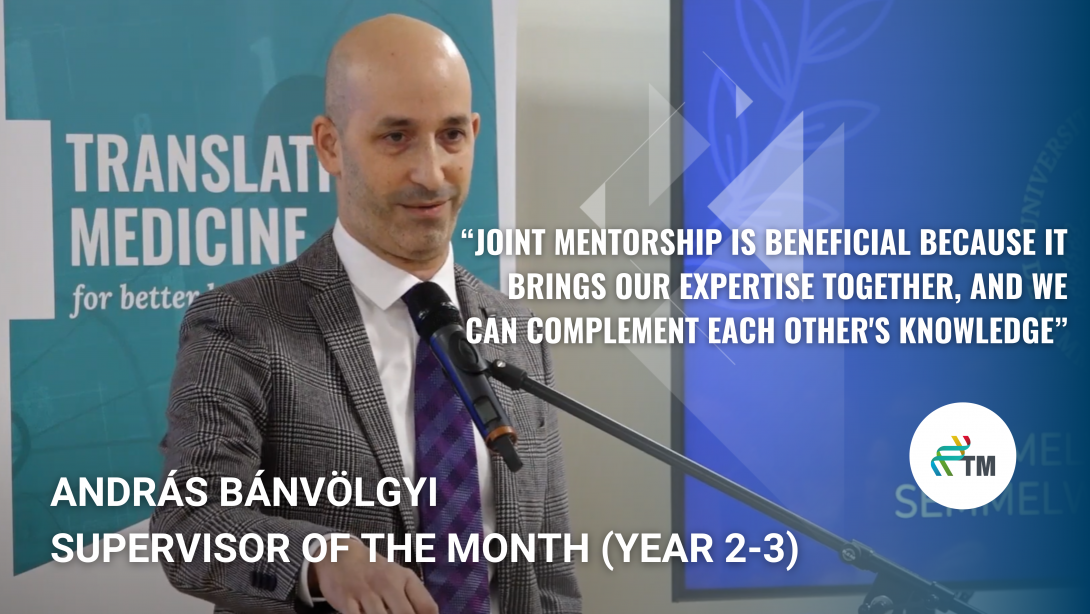
He is supervising seven second and third-year Ph.D. students, one of whom is about to have her second article published in a D1 journal. He typically guides his students with fellow supervisors because he believes this is how their knowledge adds up. In September, Dr. András Bánvölgyi was named Supervisor of the Month (Year 2-3) at the Centre for Translational Medicine.
He joined the CTM team as a supervisor at the very beginning, as soon as its training was launched at Semmelweis University. András Bánvölgyi currently has seven second and third-year Ph.D. students. “Noémi Galajda is my third-year student, she has already published a paper in a D1 journal, and we are submitting her second paper, which is expected to be published in a D1 journal as well. She is studying the pathomechanisms of psoriasis and other immune-mediated diseases, with a particular focus on their cardiovascular comorbidities. She is not only researching dermatological diseases but also rheumatological and gastroenterological ones. Her most exciting research question is how biological therapies for immune-mediated diseases affect comorbidities.”
Dr. Bánvölgyi's second-year students are researching other topics, including sexually transmitted infections (STIs). “István Szondy has already published an article on these topics in a renowned journal. He was investigating the efficacy and safety of doxycycline in preventing STIs. His meta-analysis was the first in the world to show that using this antibiotic within 72 hours after sexual intercourse is effective against chlamydia and syphilis, and potentially effective against gonorrhea. This preventive method could be used in high-risk groups.” István Szondy is also researching an autoimmune skin disease, hidradenitis suppurativa. It can cause inflamed, purulent, and painful nodules in the armpits or the groin area, and affects 1% of the population.
Katalin Martyin also explores an interesting topic. In her work, she assesses the effectiveness of teledermatological methods. Her research could show how teledermatology might be used in everyday practice and how it could reform dermatology. András Bánvölgyi points out that he typically mentors his students alongside other supervisors. He believes this is beneficial because it brings their expertise together, and they can complement their knowledge.
(Emese Szabó)